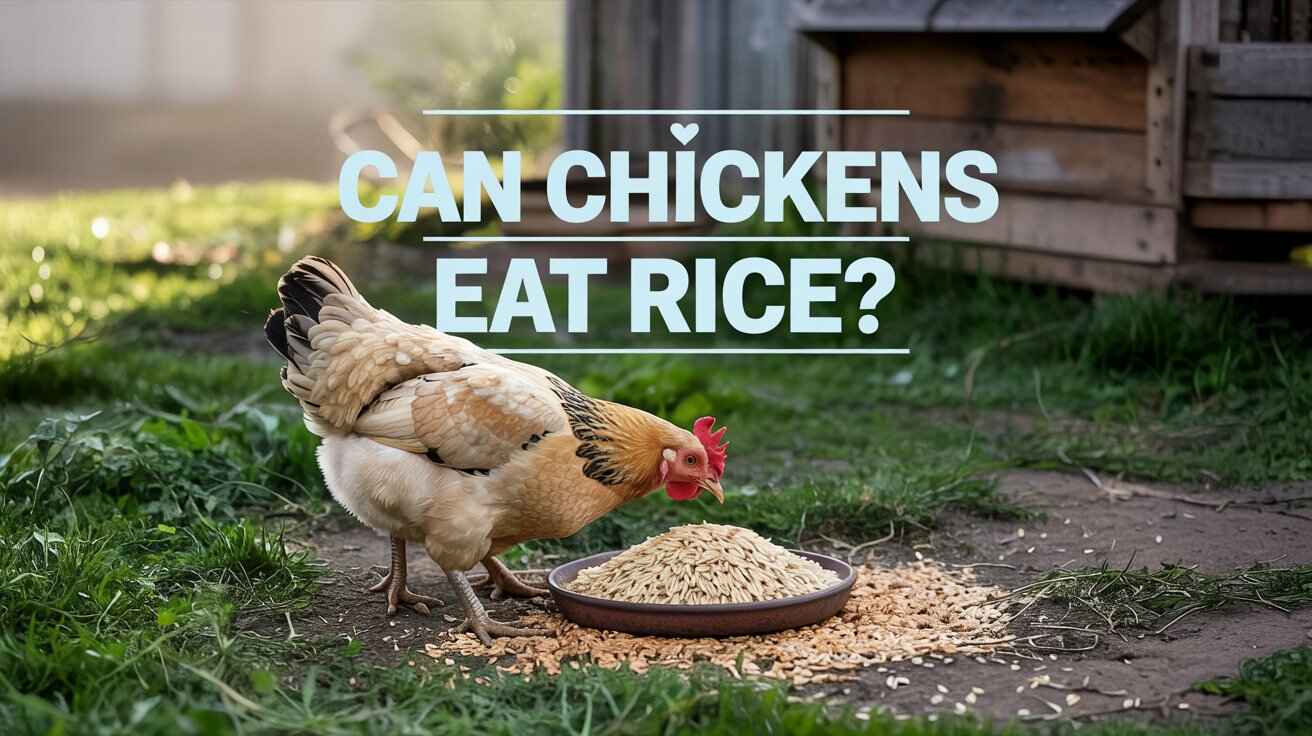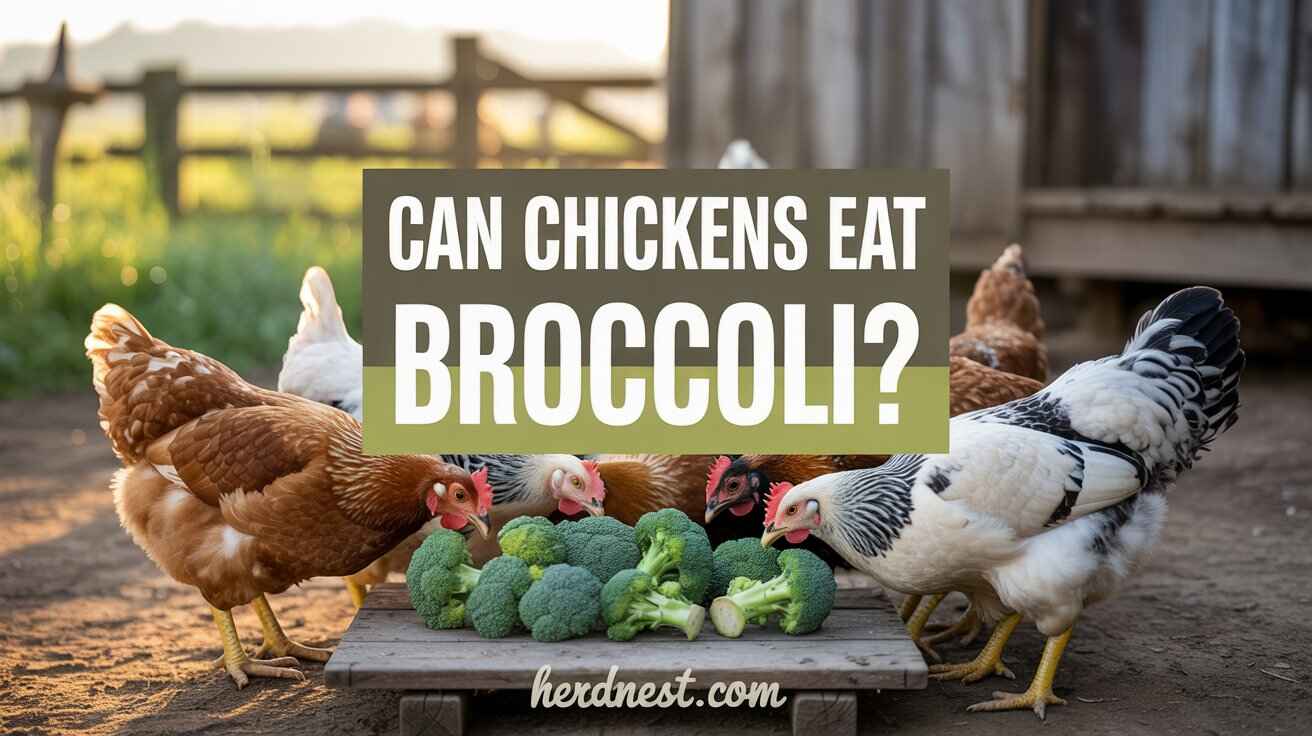I’ve always been fascinated by how certain foods become part of traditions and everyday life. Rice, for instance, has long been a symbol of good fortune and prosperity, even dating back to the ancient Romans.
But when it comes to chickens, the question arises: is rice safe for them? Over the years, myths have begun to circulate that feeding rice to birds can cause it to expand in their stomach due to moisture, leading to problems. This belief, despite being largely unfounded, has influenced practices like swapping rice for bird seed at wedding receptions.
For a farmer managing a flock, feeding decisions are all about ensuring a well-balanced diet. Chickens, as natural scavengers, often peck at a variety of foods, but their health and well-being depend on understanding what’s truly beneficial for them.
Rice, a common staple food in many households, is worth examining as a potential addition to their diet. By carefully exploring its effects and diving into what makes it a safe or nutritious choice, you can discover the best ways to keep your feathered friends happy and thriving.
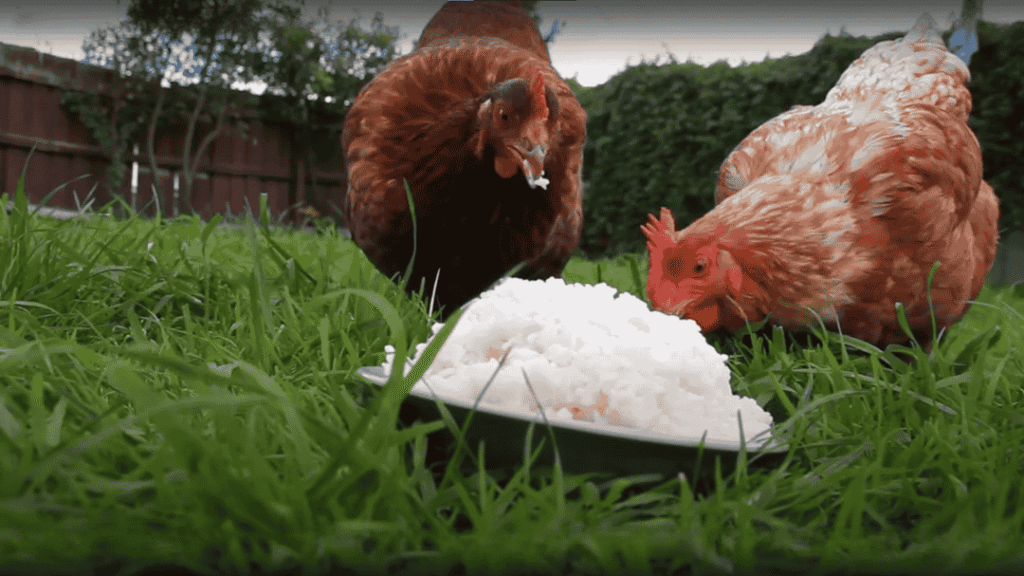
Table of Contents
ToggleCan Chickens Eat Rice?
Many people wonder if chickens can eat rice, and the simple answer is yes! Whether it’s cooked or uncooked, rice can be part of a well-balanced diet for your flock. In fact, raw rice is commonly eaten by birds in the wild, especially near rice fields where an interdependent relationship exists between rice farmers and bird species.
However, if you’re feeding your chickens cooked rice, make sure it’s not too hot to prevent burns to their mouth or crop. Mixing cooked rice with healthy foods like vegetables or fruits can provide a nutritious boost. Just avoid seasoned or salted rice, as these can cause harm to their health.
Feeding rice should always be done in moderation, with about 10% of the chicken’s total diet being enough. Brown rice, white rice, short grain, or long grain are all suitable options, and even leftovers like Spanish rice or salad can be enjoyed as treats by your flock.
Chickens use their gizzard, along with grit like rock or sand, to break down food into usable particles, aided by digestive juices and muscular action.
Leftover Mexican food or pantry staples from the cupboard, such as uncooked rice, can be shared with your chickens too. And just like wild birds enjoy birdseed, your hens will appreciate these additions, especially on a chilly winter evening.
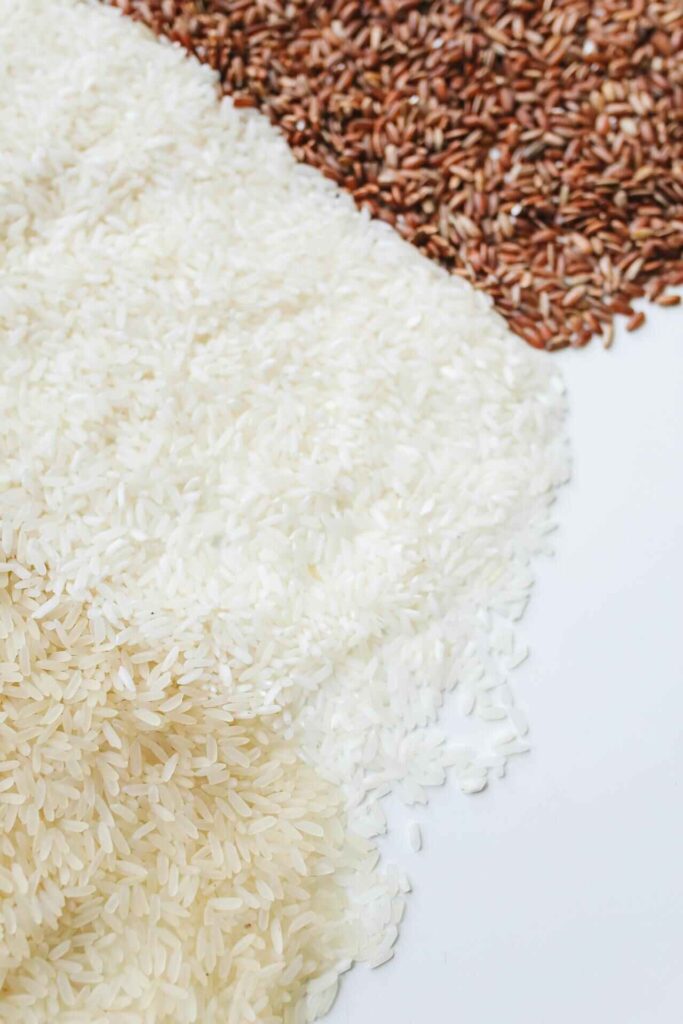
What Types of Rice Can Chickens Eat?
Chickens can eat a variety of types of rice, including white rice like Basmati rice, Jasmine rice, Arborio rice, and Calrose rice. For a more nutrient-dense option, brown rice—such as short-grain brown rice, long-grain brown rice, Jasmine brown rice, or Basmati brown rice, is better for their diet.
Wild rice, including Northern Wild Rice and Texas Wild Rice, stands out as the least high in fat, calories, and carbohydrates, making it one of the healthiest choices. While plain white rice can be offered occasionally, it’s best to prioritize richer options like brown rice or black rice for your flock’s nutrition.
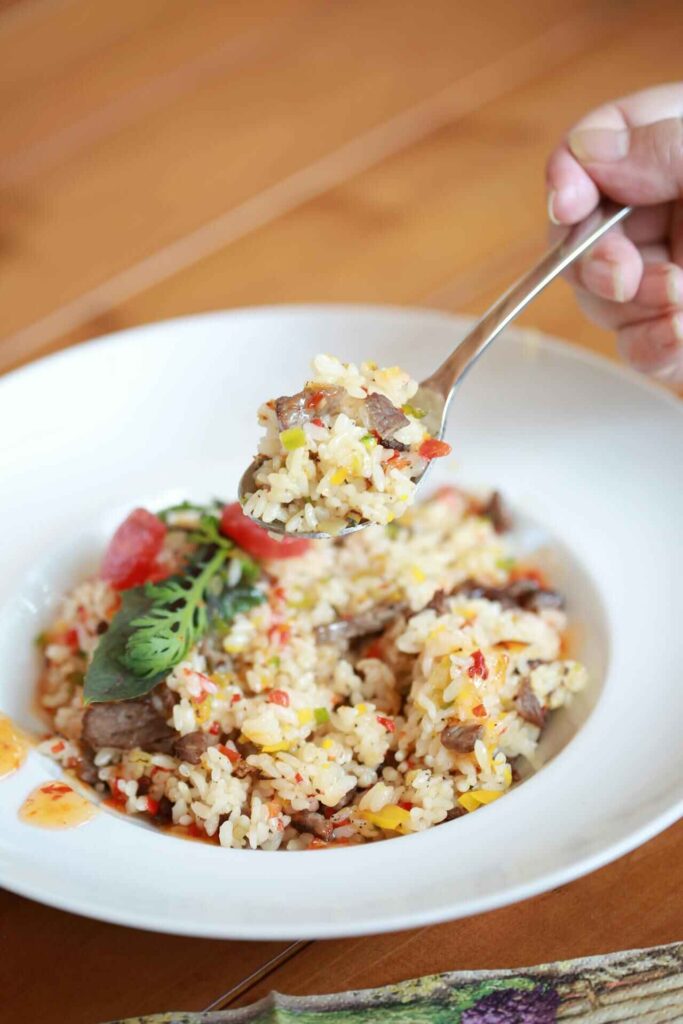
What Types of Rice Should Chickens Avoid Eating?
Not all rice is good for your chickens. Avoid giving them Rice Krispies Treats, rice cakes, rice cereals, or rice pudding as these often contain added sugars, artificial flavors, and preservatives that can harm their health.
Foods like flavored rice mixes and seasoned rice are also a bad idea because they tend to be high in salty foods or sugary foods, which may lead to obesity, diabetes, or other health problems.
Even uncooked rice, if eaten in high quantities, could cause digestive problems for your flock. Instead, stick to a well-balanced diet with plenty of healthy foods like vegetables, fruits, insects, and worms to support their well-being and optimal health.
Can Baby Chickens Eat Rice?
Baby chicks should not be given rice until they are at least six months old, as it is unsuitable for their delicate digestive systems and can lead to crop impaction or other digestive problems. Instead, they need a high-protein diet to support their growth and development, which can be provided through starter chick feed that is commercially available and designed to meet their nutritional needs.
Once they reach six months, you can gradually introduce small amounts of cooked rice as a treat, making sure it is unseasoned and offered in moderation. By this time, they will be closer to becoming adult chickens, and their diet can handle this healthy addition without causing harm.
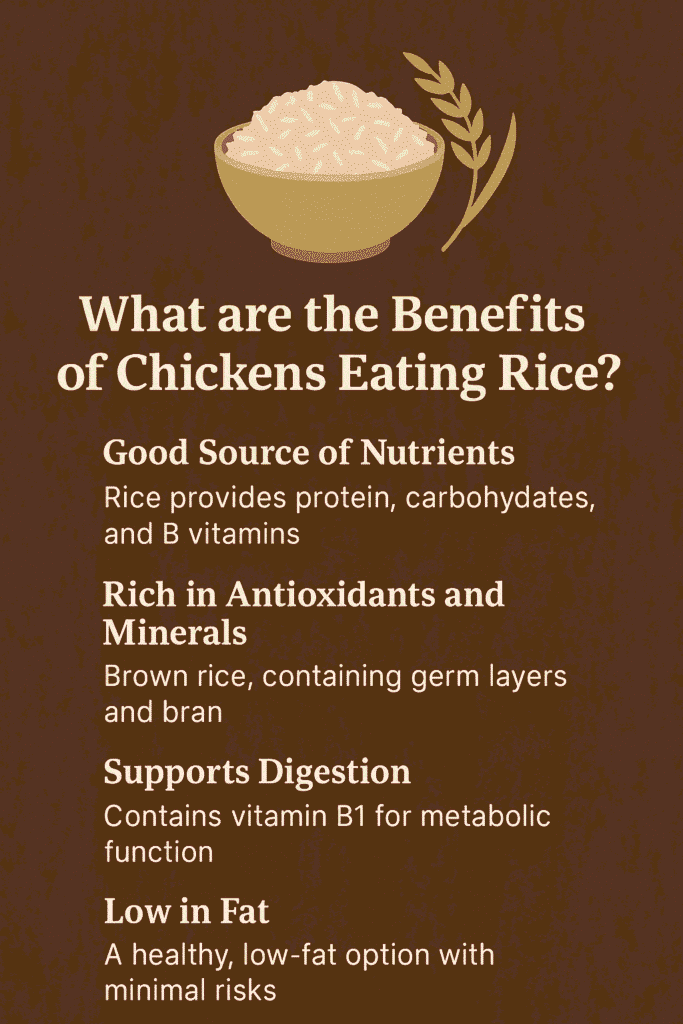
What are the Benefits of Chickens Eating Rice?
Rice is a fantastic addition to a chicken’s diet because it provides essential nutritional value. Both brown rice and white rice are rich in protein, carbohydrates, and vitamins like niacin and B vitamins, which give your flock the energy they need.
Brown rice, in particular, contains the germ layers and bran, making it more nutritious and packed with antioxidants, fiber, and minerals like iron, magnesium, and potassium. These nutrients support overall health and help with egg hatching and healthy digestion.
Feeding rice in moderation can also benefit the digestive system due to the presence of vitamin B1 (thiamin), which helps regulate metabolism and appetite. Additionally, wild rice stands out as a superfood with anti-inflammatory properties, aiding in the prevention of chronic diseases such as cancer, diabetes, and heart disease.
Being naturally low-fat, rice is a healthy food option that avoids risks like obesity and other health problems caused by excessive fat. Whether served as cooked rice or even an occasional treat, rice can be a valuable part of your flock’s diet.
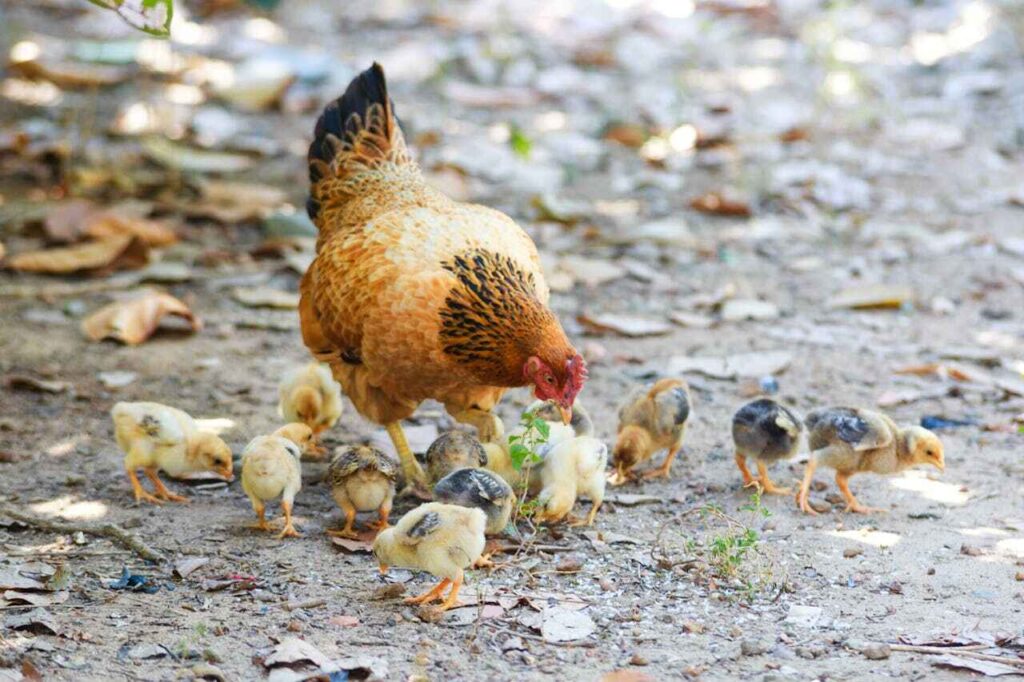
Risks of Rice for Chickens
While plain rice and cooked rice are generally safe for chickens, certain risks should be considered. Seasoned rice or flavored rice with high salt or added sugar can lead to salt toxicity, hypernatremia, dehydration, and other health issues.
Too much sugar can cause overweight chickens, impacting their laying ability. Excessive rice, even though it’s a healthy food, can cause diarrhea by disrupting the gut balance due to its high carbohydrate content.
Additionally, overfeeding rice can promote weight gain because it is a carbohydrate-rich food, leading to fat storage and affecting a chicken’s overall health. To avoid these problems, include rice in moderation as part of a balanced diet with nutrient-rich foods like fruits, vegetables, and protein sources to maintain a healthy weight and good health.
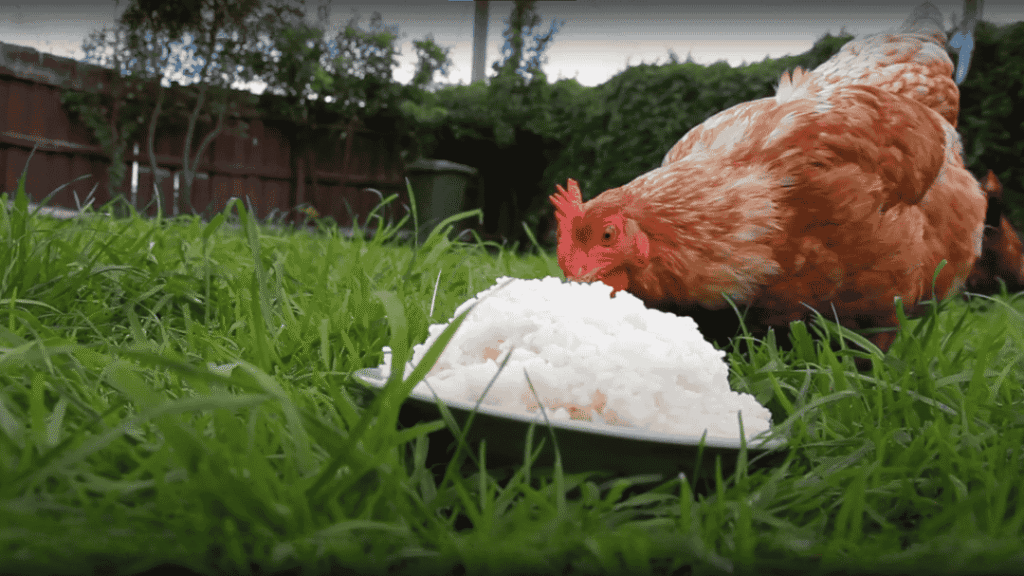
How Much Rice Can Chickens Eat?
Rice can be a healthy treat for chickens, but it should only make up a small portion of their overall diet. A good guideline is to ensure that rice accounts for no more than 10% of their meals.
Including nutrient-rich foods alongside rice is essential to maintain their health and prevent excessive weight gain. Always feed rice in moderation and keep an eye on your flock by monitoring their condition. If needed, adjust their diet accordingly based on their individual needs to ensure they stay healthy and happy.
Final Thoughts
Rice can be a healthy addition to your chicken’s diet when it is prepared properly and offered in moderation. It provides essential vitamins and minerals, which support digestion and overall well-being.
However, avoid feeding your chickens seasoned rice or excessive rice, as these can lead to health problems. By following proper guidelines, you can ensure your feathered friends remain healthy and happy while enjoying rice as part of their balanced diet.
